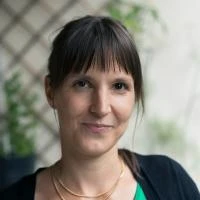
Connect
About
I joined the LSE in 2012. Before that, I earned my BA and PhD in Anthropology from the University of Cambridge and taught at the University of Exeter (2009-2012). My early research examined the rapid remake of Berlin, Germany’s capital city, through the contested practice of urban planning. Since then I have focused on energy developments, plantation and extractive economies, and struggles over transparency and inclusion in environment/resource management in São Tomé and Príncipe and the UK. A question I keep returning to in my research is how people’s imaginations of the future and their ideas of what’s to come shape the cultural and material worlds they make. As an experienced field researcher, I use a range of qualitative methods and have worked both independently and in interdisciplinary teams. I have also done consultant research for third sector and corporate organisations. I was a Leverhulme Research Fellow (2012-13), Visiting Researcher at the Institute for Social and Cultural Anthropology, Oxford University (2012-14), Visiting Fellow at the Zentrum Moderner Orient, Berlin (2015), and Visiting Scholar at Columbia University, New York (2016).
My book, Berlin, Alexanderplatz: Transforming Place in a Unified Germany (2010), explores the agonistic relations of expertise, democratic participation, and civic belonging from which the city was reimagined in the wake of state socialism. My specific ethnographic focus is the controversy Alexanderplatz, a public square and showcase of socialist urban infrastructure, which involved public planning agencies, independent experts, and citizen activists. I built on these insights in a productive collaboration with Simone Abram, resulting in the edited volume Elusive Promises: Planning in the Contemporary World (2013), which theorises how planning negotiates future material possibilities.
I am now writing a second monograph, A Doubtful Hope: Oil, Time, and Ethnography in Atlantic Africa. Drawing on extended research on the speculative logics at play in offshore hydrocarbon exploration in São Tomé and Príncipe, the book reflects on ethnography as an uncertain commitment, challenging assumptions about its defined spatial and temporal limits.
I am also working on the question of how we can imagine an end for oil. I began to explore this in Fraying ties? Networks, territory and transformation in the UK oil sector (ES/S011080/1), an interdisciplinary, ESRC-funded project with geographer Gavin Bridge (Durham), political scientist Nana de Graaff (Vrije Universiteit), and researcher-activist James Marriott (Platform). Tides of Transformation, a four-part podcast series, discusses the findings of this research. I have pointed to the need to rethink the objective of the UK oil and gas regulator to facilitate the cessation of licensing and a reimagining of what the North Sea is for. Together with William Otchere-Darko (Newcastle), I have examined contestations of what might constitute a truly "just" energy transition in the context of Aberdeen’s shift toward a post-carbon economy. This led to an exciting collaboration with curator Rachel Grant and sound artist Maja Zećo which has used soundwalks as a place-based form of inquiry and intervention in the struggles over energy transition in Aberdeen. I have also written about the enormous challenge posed by the more-than-financial liabilities of oil and gas decommissioning.
I am keen to attract PhD students and postdoctoral mentees who want to develop ethnographically and theoretically compelling projects on energy-related issues, the regulatory, financial, and affective aspects of capitalism, state planning and urban development, and (post)plantation and extractive economies in the Global North and South. If you are interested in pursuing doctoral or postdoctoral research with me, please, get in touch, sending a CV and a brief outline initially.
Expertise
Anthropology of the economy, corporations, expertise; resource extraction; state (urban) planning; temporality, materiality, and affect; Europe, US, lusophone Africa